
by Shimim Mushsharat | Sep 30, 2025 | Previous Events
The ENGAGE4Sundarbans team will participate in the 28th European Conference on South Asian Studies (ECSAS), taking place in Heidelberg, Germany, from October 1–4, 2025. During the conference, the team is organising a panel titled “Living with and Recovering from Coastal and Riverine Disasters: A Critical Approach to Riskscape”.

Under this panel, Samiya Selim, Director and Professor, Centre for Sustainable Development, University of Liberal Arts Bangladesh, and Md Nurul Islam, Lead Researcher, Research and Evaluations at SAJIDA Foundation, will deliver a presentation on “Governing the Commons: An Ethnographic Exploration of Local Adaptation Response to Complex Global Problems.”
Emilie Cremin, Institute of Geography and Sustainability – IGD, University of Lausanne, Switzerland; Souradip Pathak – IIT Kharagpur, India; and Tapas Mondal – SJSM, NGO, Kolkata, India, will be delivering a presentation on “Restoring Rights and Resilience: Ādivāsī Communities, Traditional Knowledge, and Environmental Conservation in the Indian Sundarbans” during the panel.
Emilie Cremin will convene this panel.
The discussion will focus on the challenges faced by riverine, deltaic, and coastal regions of South Asia, which are regularly exposed to cyclones, floods, and storm surges. These recurring hazards not only damage agriculture and infrastructure but also displace communities. The panel will explore how different stakeholders respond to these risks—through public management, community initiatives, agro-ecological practices, and nature-based solutions—while critically examining their effectiveness. By engaging with questions of power, the hydrosocial cycle, and local socio-ecological contexts, the session seeks to foster knowledge exchange on sustainable reconstruction and adaptation in complex, multi-risk environments.
Learn more about the conference: Click Here
Riverine, deltaic, and coastal areas of South Asia are frequently affected by hydrometeorological hazards, such as cyclones, floods, and storm surges. These recurring events damage agricultural production and public and private infrastructure. As a result, erosion of the coasts and banks has led to the displacement of many villages. For this panel, we are seeking contributions that examine the adaptive strategies deployed by different categories of stakeholders to cope with and adapt to hazards. The effectiveness of public management of hazards through structural (extension of embankments, construction of shelters, etc.) and non-structural (awareness raising, support for adaptive strategies, etc.), individual and collective strategies based on agricultural adaptations and agro-ecological technologies used in rice or shrimp farming, nature-based solutions initiatives, coastal or river restoration practices and other alternatives are all being called into question. Overall, we aim to create a site-based knowledge exchange that critically addresses the issue of adaptation by examining power relations between public and private sector actors to highlight the limitations of strategies adaptation. We thus wish to explore the source of the problem, considering the hydrosocial cycle and the social, economic, and ecological situations that support sustainable reconstruction in spaces exposed to multiple risks.
Presentations
Selim Samiya – Center for Sustainable Development, University of Liberal Arts Bangladesh, Dhaka, Bangladesh
Islam Nurul – Sajida Foundation, Sajida Foundation, Dhaka, Bangladesh
This paper examines the critical role of place-based, localized governance systems for protecting and restoring commons i.e access to land access and water systems that benefit communities over corporate investment. It highlights the importance of community-centric governance approaches and bottom-up policy frameworks in fostering resilience by returning the rights of commons to the communities.The study emphasizes the need for localized governance of commons and a bottom-up policy approach to enhance social resilience of coastal communities facing the complex dual challenges of climate change and human intervention. By analyzing the role of the local governance system in managing shared resources, the paper aims to provide actionable insights for policymakers, practitioners, and community stakeholders involved in common resource management and policy formulation.
Theocharis Angelos – Department of Media, Culture, Heritage, Newcastle University, Newcastle Upon Tyne, United Kingdom
Indigenous worldviews encompass nuanced understandings of cultural adaptation, recognising change as an intrinsic part of sustaining living cultures and landscapes amid environmental shifts. Many Indigenous communities perceive time as cyclical, fostering continuity and resilience through transformation. This paper examines Indigenous adaptation strategies in deltaic environments, where climate crisis exacerbates existing ecological vulnerabilities. Drawing on Indigenous films from the Ganges-Brahmaputra-Meghna Delta in Bangladesh, the Red River and the Mekong Deltas in Vietnam, I will explore how Indigenous narratives illustrate adaptation as a complex interplay of loss, resilience, and innovation. Dao filmmakers in Vietnam document shifts in traditional cultural practices due to resource scarcity. Khmer communities in the Mekong Delta, facing soil salinization and erratic weather, adopt alternative livelihoods. The Munda people of Bangladesh, displaced by climate disasters, navigate transformations in social and economic practices while maintaining cultural identity. This paper argues that Indigenous strategies frame adaptation as a relational, forward-looking process that integrates cultural continuity with necessary transformations.
Crémin Emilie – Instititute of Geography and suistainability – IGD, University of Lausanne, Lausanne, Switzerland
Souradip Pathak – IIT Kharagpur, Kharagpur, Kharagpur, India
Tapas Mondal – SJSM, NGO, Kolkata, India
This article delves into the environmental history of ādivāsī communities, including the Munda and Santal, who rely on the Indian Sundarbans for their livelihoods. Displaced during colonial rule, these communities have since developed a symbiotic relationship with the forest, acquiring extensive ecological knowledge critical for its preservation. Despite their expertise, ādivāsī communities face severe challenges from recurrent
geophysical and human-made hazards. Additionally, they face significant socioeconomic challenges. They are among the poorest and most vulnerable groups in India, with limited access to education, healthcare, and economic opportunities. Their exclusion from forest areas, driven by conservation policies and development projects, has further undermined their livelihoods. Their vulnerability is exacerbated by socioeconomic
marginalisation, exclusion from forest areas, and the impacts of development projects like tourism and industrialisation.
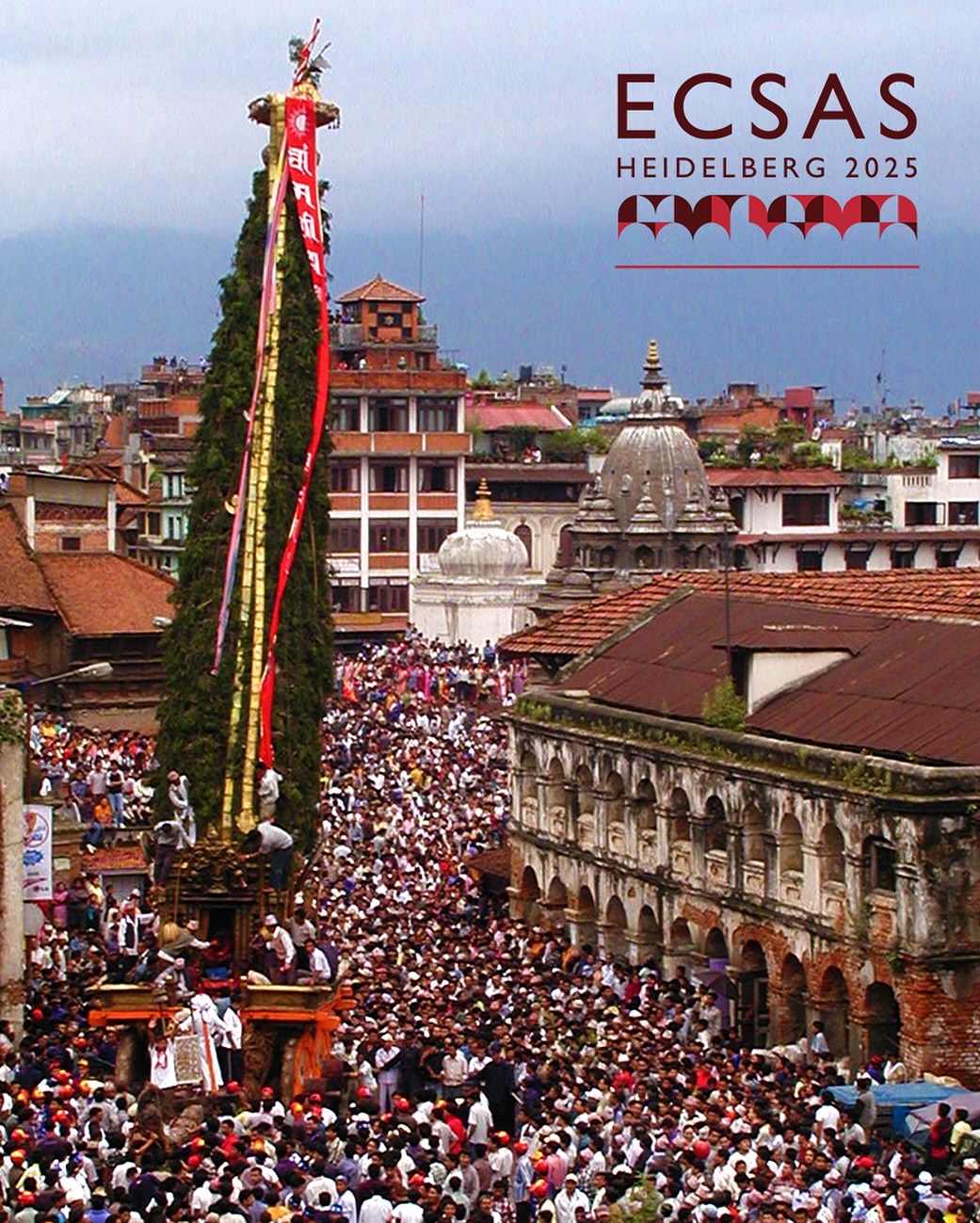
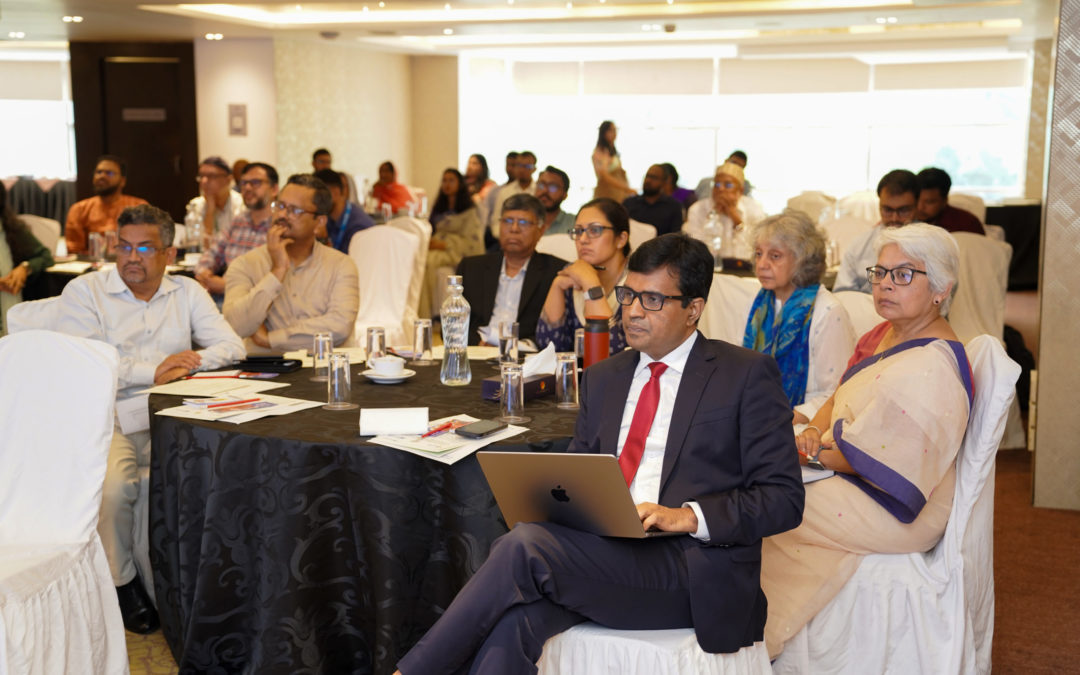
by Shimim Mushsharat | Sep 11, 2025 | Previous Events, Uncategorized
SAJIDA Foundation hosted a half-day research dissemination event on 21 August 2025 at Lakeshore Heights, Dhaka, bringing together over 50 participants including researchers, policymakers, government officials, embassy representatives, development practitioners, and community members.
Representatives from IUCN, icddr,b, GAIN, WHO, Naripokkho, University of Liberal Arts Bangladesh (ULAB), Helvetas, the Ministry of Agriculture, Centre for Climate Change and Environmental Research (C3ER), Plan International, Swisscontact, SAARC Agriculture Centre (SAC) attended the event. The gathering provided a platform to share insights and discuss local, community-led solutions for climate adaptation in Bangladesh’s most vulnerable regions.
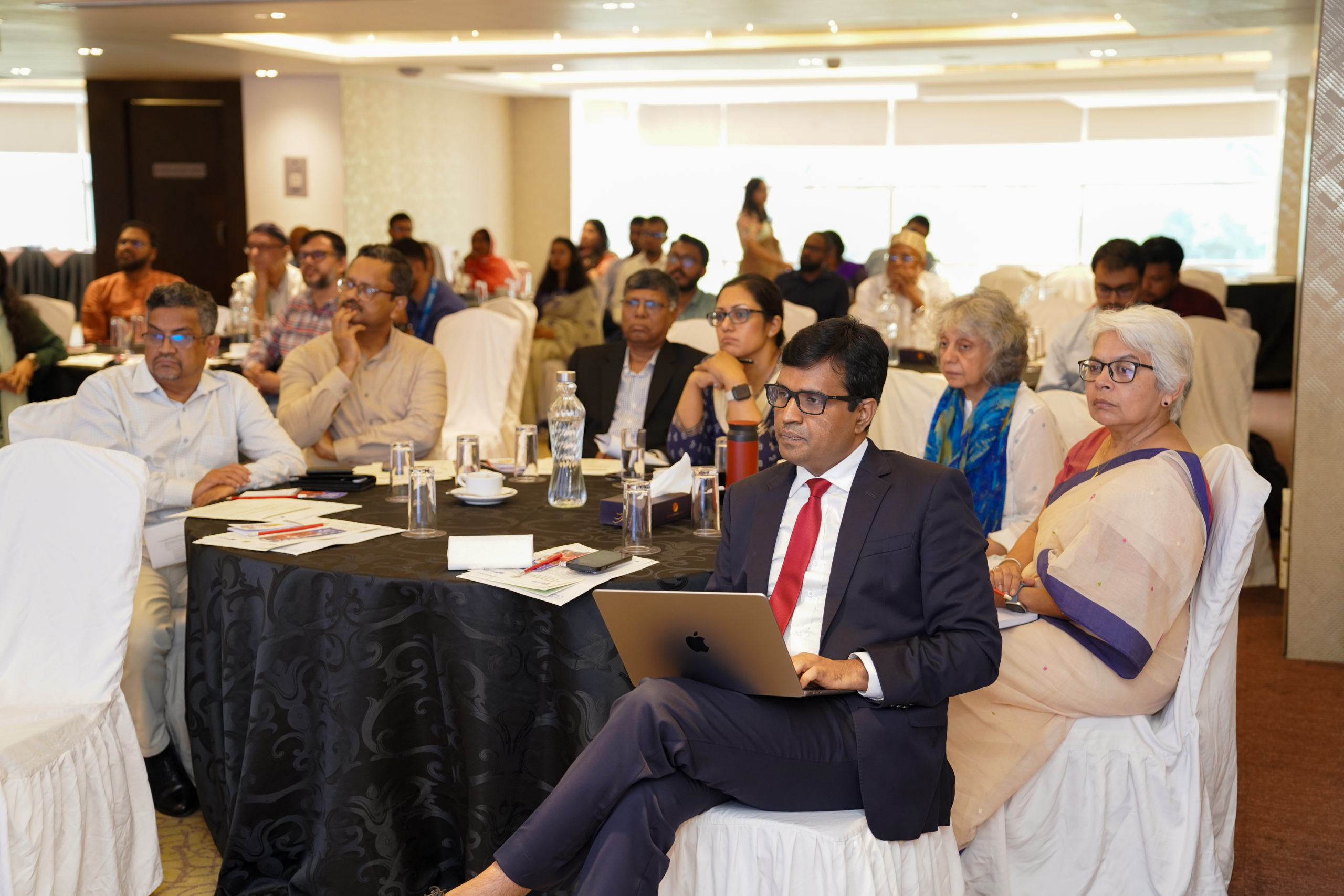
ENGAGE4Sundarbans| A Research to Experiment Intervention Co-designed with Climate-vulnerable Communities
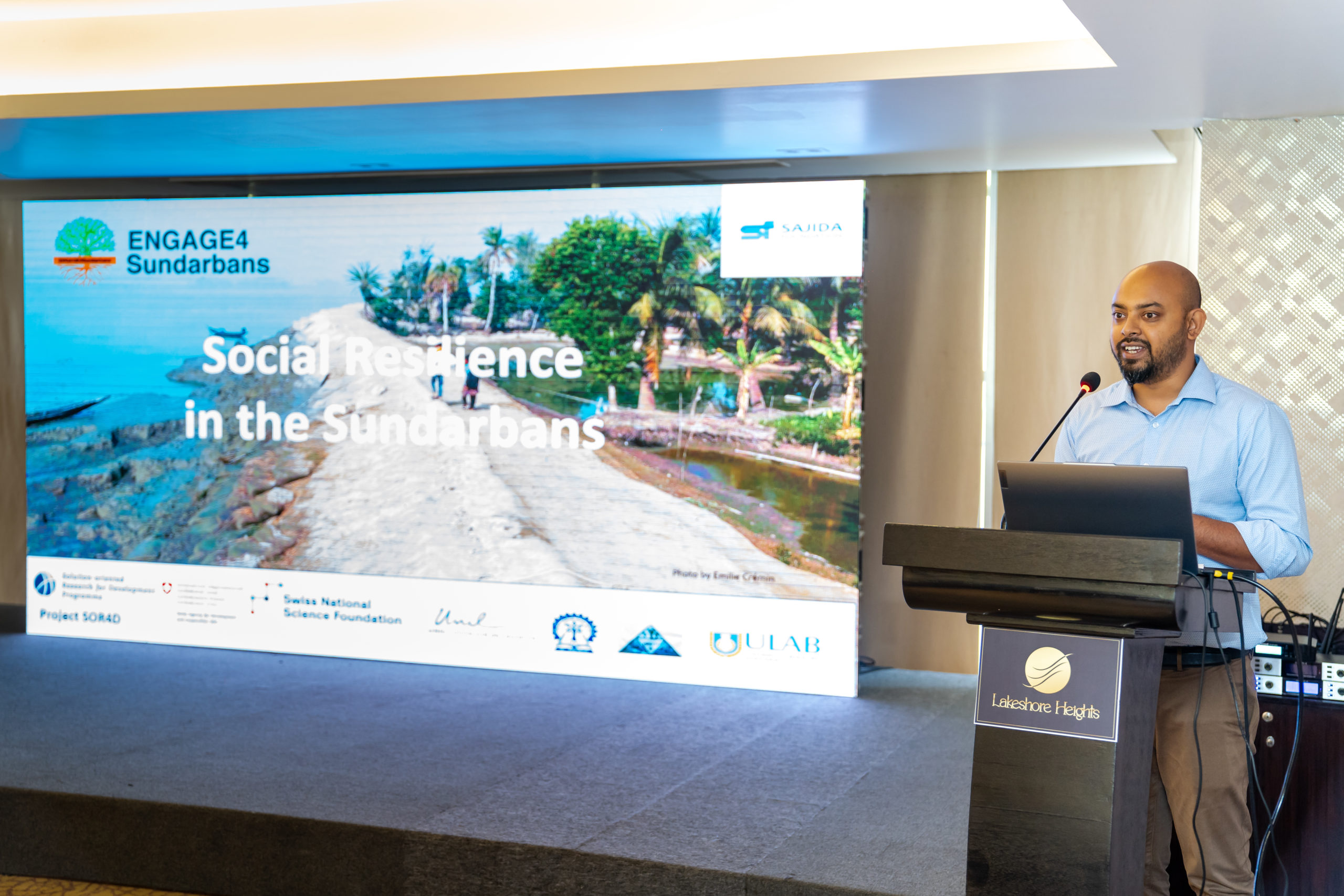
The Sundarbans faces severe threats from climate change and human activities, and top-down interventions often harm rather than help communities. In response, the Eliciting Needs-based Grassroots Action through Cross-Group Engagement (ENGAGE4Sundarbans) project was launched with support from the Swiss Agency for Development and Cooperation (SDC) and the Swiss National Science Foundation (SNSF).
At the event, Nurul Islam Biplob, Lead Researcher at SAJIDA Foundation, presented key findings from the project, which builds on Nature-based Solutions (NbS) and community-led adaptation. He described how farmers, community leaders, union councils, local entrepreneurs, government agencies, and experts collaborated to design and implement the intervention.
More on ENGAGE4Sundarbans: Click here
Key learnings from the experiment
The findings emphasized that locally driven solutions yield the strongest outcomes when we
- Elevate and integrate women’s leadership into adaptation planning and implementation.
- Expand the Farmers’ Commons model for collective access to land, finance, and markets.
- Invest in local value chains and processing to strengthen rural economies and reduce losses.
- Provide flexible financing tailored to smallholders and local entrepreneurs.
- Institutionalize community-led adaptation through stronger local governance partnerships
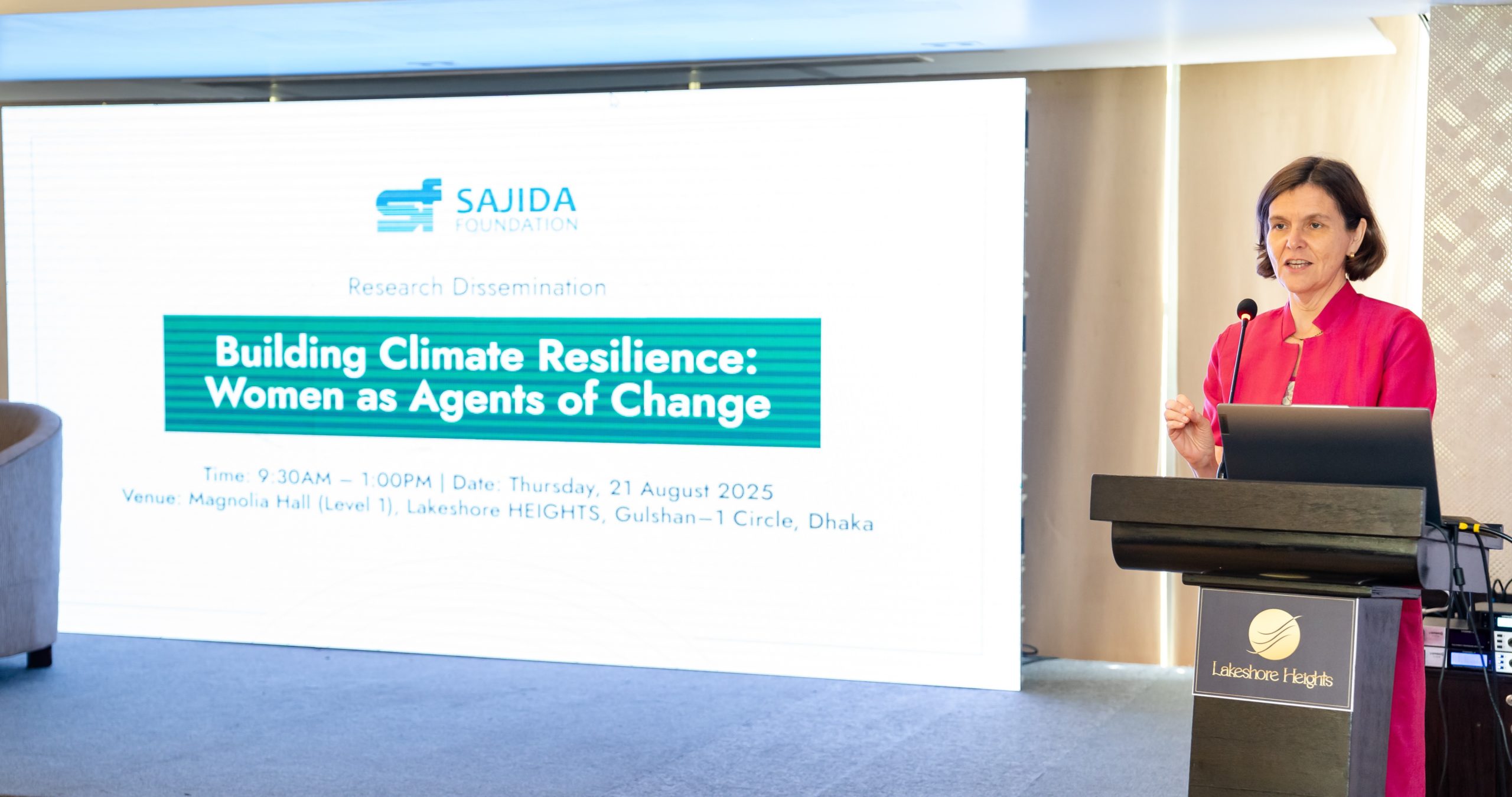
“We will continue to explore avenues for collaboration between CALL and ENGAGE, aiming to advance the discussion and practice of locally led localisation.” – Corinne Henchoz Pignani, Head of Cooperation, Embassy of Switzerland in Bangladesh
Corinne Henchoz Pignani highlighted the activities the Swiss funding agencies and NGOs are doing in the Climate Action at Local Level (CALL) programme. She expressed the hope that there would be greater cooperation between CALL and ENGAGE4Sundarbans for locally led adaptation and mitigation. Emphasising the importance of co-design with communities, she noted that when people of concern are in the driver’s seat—actively participating in design and decision-making—the solutions are far more effective. While this approach is not always easy, it is essential for meaningful impact.
Plenary Session | Bridging Evidence and Action: Climate Resilience in the Sundarbans Delta
An engaging panel discussion on was moderated by Md Fazlul Hoque, Deputy Chief Executive Officer of SAJIDA Foundation, who raised questions on scaling research findings, contextualising NbS in local Settings, ensuring social inclusion, securing government support for NGO projects, and strengthening local adaptation.
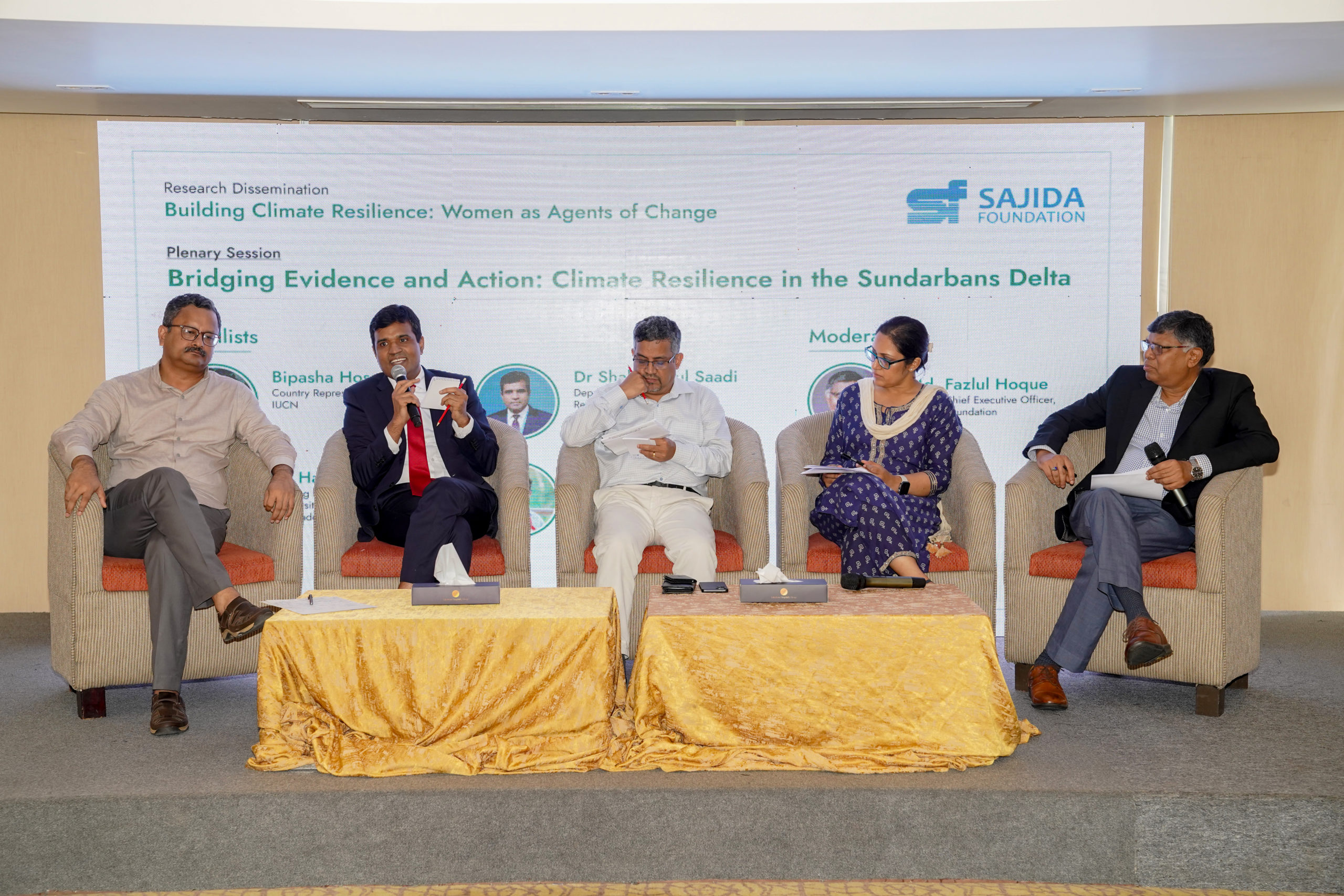
Session Takeaways
Regarding the scalability of research findings, Dr Shah Abdul Saadi, Deputy Secretary, Economic Relations Division (ERD) under the Ministry of Finance, expressed that scaling requires careful consideration of the supply and demand equation. He appreciated SAJIDA Foundation’s focus on sensitive areas of climate change including fisheries and agriculture.
Bipasha Hossain, Country Representative at IUCN, highlighted the impressive work of communities, especially women, including testing salt-tolerant rice and vegetable varieties, practicing raised-bed cultivation, excavating canals, and using compost. In the Sundarbans, she suggested interventions such as mangrove creation, embankment plantations functioning as “green fences” against salinity, and multi-nutrient crop farming on the same land.
“When discussing agriculture, we often focus solely on people and neglect biodiversity. However, during the last presentation on agroecology, biodiversity naturally entered the conversation, highlighting its intrinsic connection to farming practices. It is important to remember that we are part of a social-ecological system; we are not only “social” or only “ecological”—we are both,” Noted Dr Haseeb Irfanullah, Visiting Research Fellow at the University of Liberal Arts Bangladesh (ULAB)
Dr AKM Nuruzzaman, General Manager at Palli Karma-Sahayak Foundation (PKSF), noted challenges in aligning with public organisations, as civil society efforts often run parallel to government initiatives and pointed to critical data gaps at the local level, such as the number of functional water sources. Coordination, he explained, often requires peace-building approaches, and while many good initiatives remain shelved, gradual progress continues within an imperfect system.
A Q&A session followed the plenary, allowing participants to engage with the speakers and clarify key points.
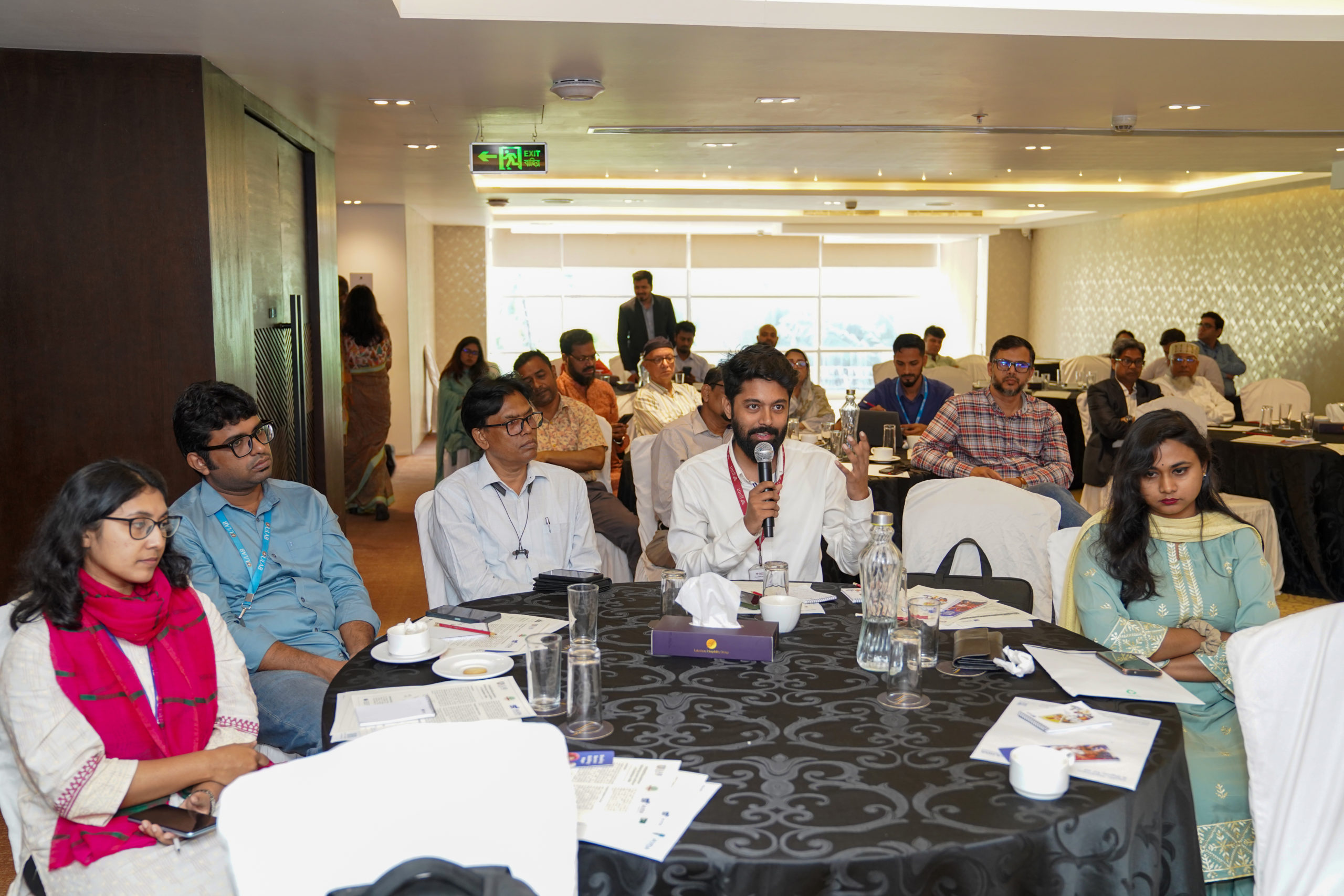
“There is a gap between researchers and implementers. We need to bridge the gap between people, research, programmes, bureaucracy for better results.” – Dr Sajeda Amin, Senior Research Advisor, SAJIDA Foundation
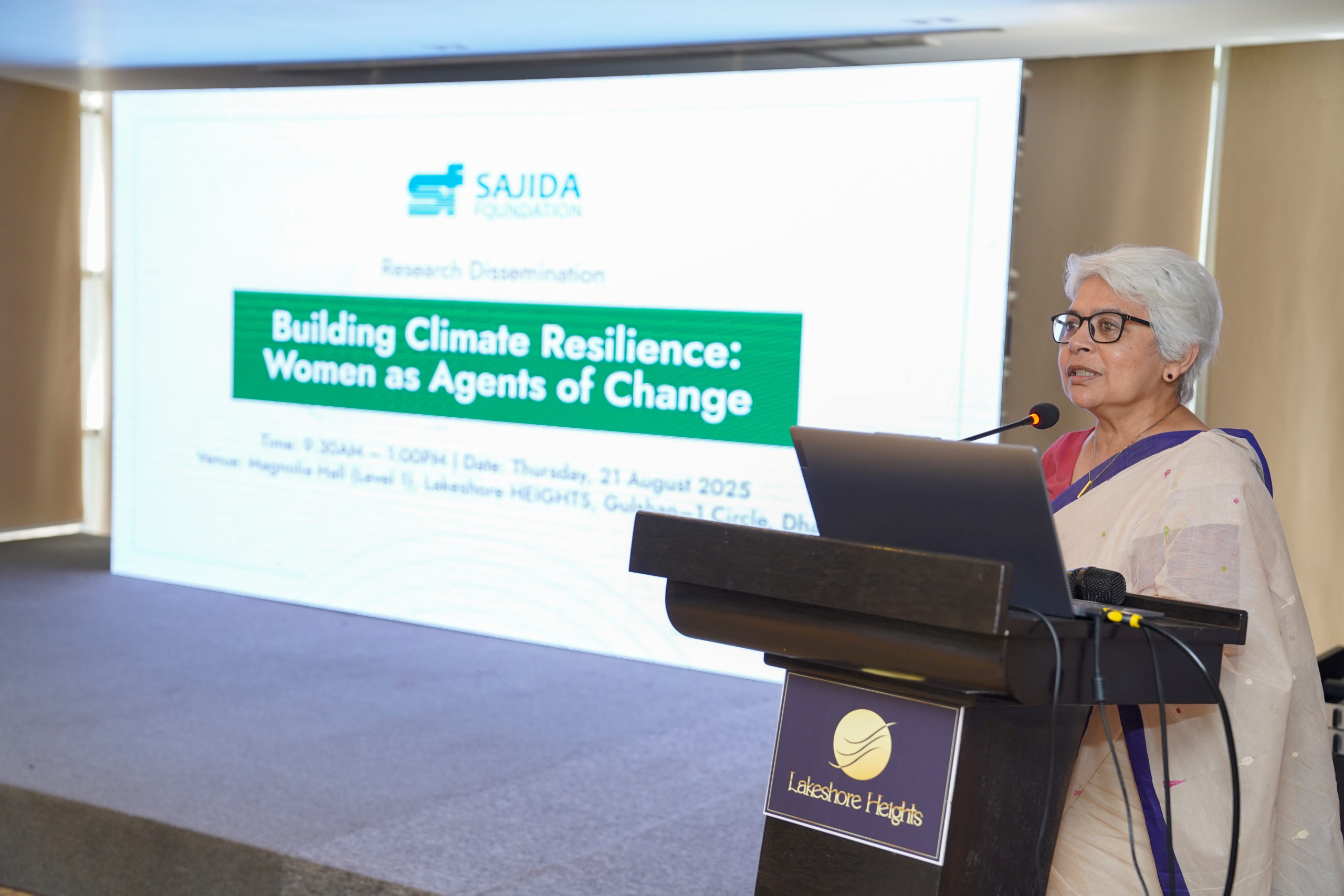
In her closing remarks, Dr Sajeda Amin laid emphasis on the need for understanding local cultures for better communication with local communities and ensure greater impact of any programme.
Recommendations
- Recognise women’s role in resilience building
- Strengthen local governance partnerships
- Enable flexible financing for smallholding farmers and local entrepreneurs
- Invest in local processing and value addition
- Scale up Farmers’ Commons model
- Enhance market linkages
- Develop sustainable irrigation system
- Document and Scale Social Learning
- Integrate NbS in climate adaptation planning
Event coverage
The event garnered extensive media coverage, reflecting the critical role of women in driving climate resilience:
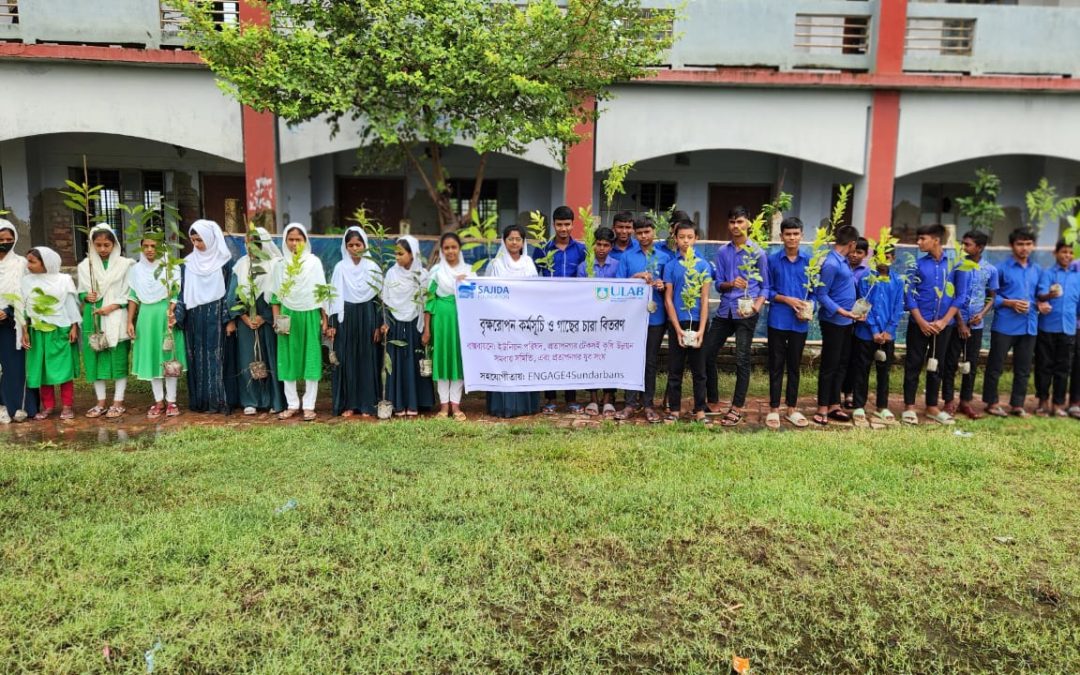
by Shimim Mushsharat | Aug 7, 2025 | Previous Events, Uncategorized
There was a time when the villages of Protapnagar Union were famous for its greenery and fruit orchards. Towering palm trees lined the narrow paths, wood apple, mango orchards thrived near homesteads. Children played in the shade of banyans that had stood for generations. For many elders in the community, those memories are still vivid, a time when the land was fertile, the rivers gentle, and every household had at least a few fruit trees providing both food and shade.
Over the years, however, the landscape has changed drastically due to changing climate. Repeated cyclones, coastal flooding, and increasing salinity have taken a heavy toll on the environment. The big trees are now rare. Orchards have disappeared. Once-productive lands are now dry or saline. Local biodiversity has declined, and many livelihoods have been affected. Still, the memory of the greener past lives on in the words of senior citizens, who speak of it not just with sadness, but with a hope that one day, the land might heal again.
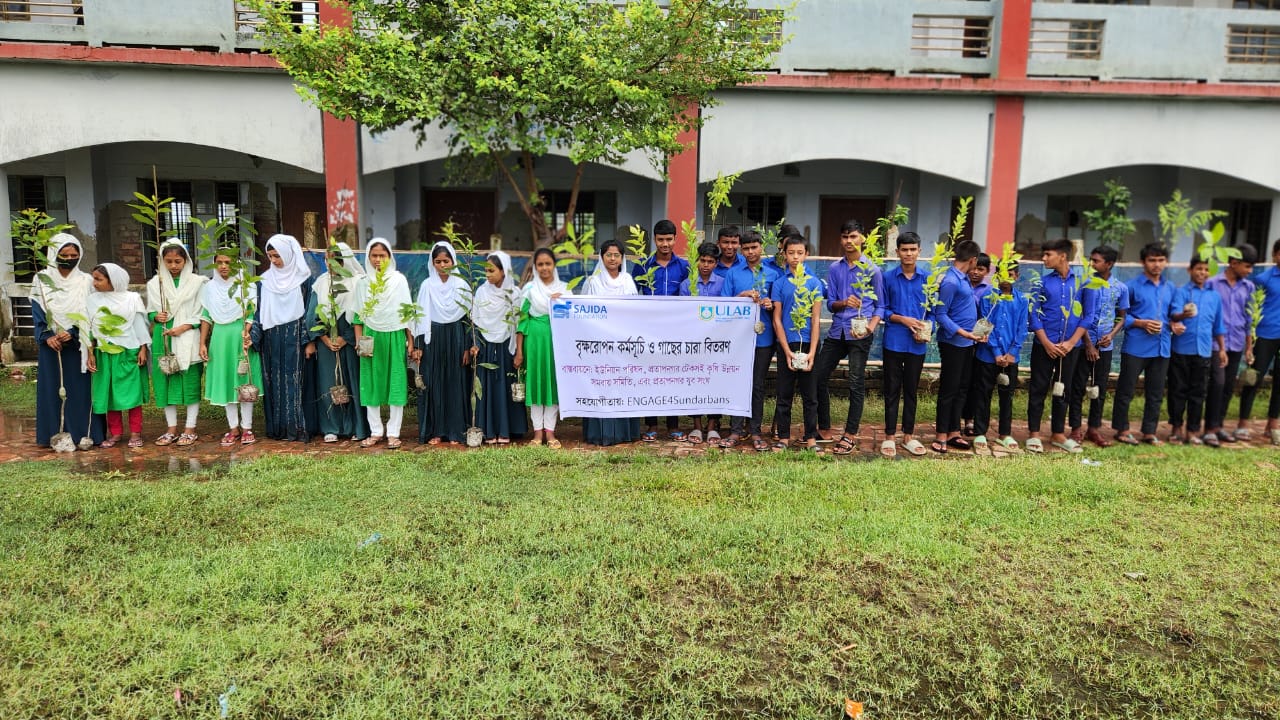
On 6 August 2025, the first step was taken to make that hope a reality. Engage4Sundarbans, in collaboration with the Union Council, Farmers’ Association, and youth groups, organised a large-scale native tree planting and re-greening campaign at Protapnagar. This community-driven initiative aimed to restore some of the lost greenery and strengthen the region’s climate resilience.
The activity was designed to foster local ownership and participation. Saplings were distributed through schools, the Union Council office, and other community channels. Farmers, students, local leaders, and volunteers came together to plant over 1,000 saplings of native tree species, including Blackboard tree, Black Plum, Tamarind, Wood Apple, Neem, and Banyan.
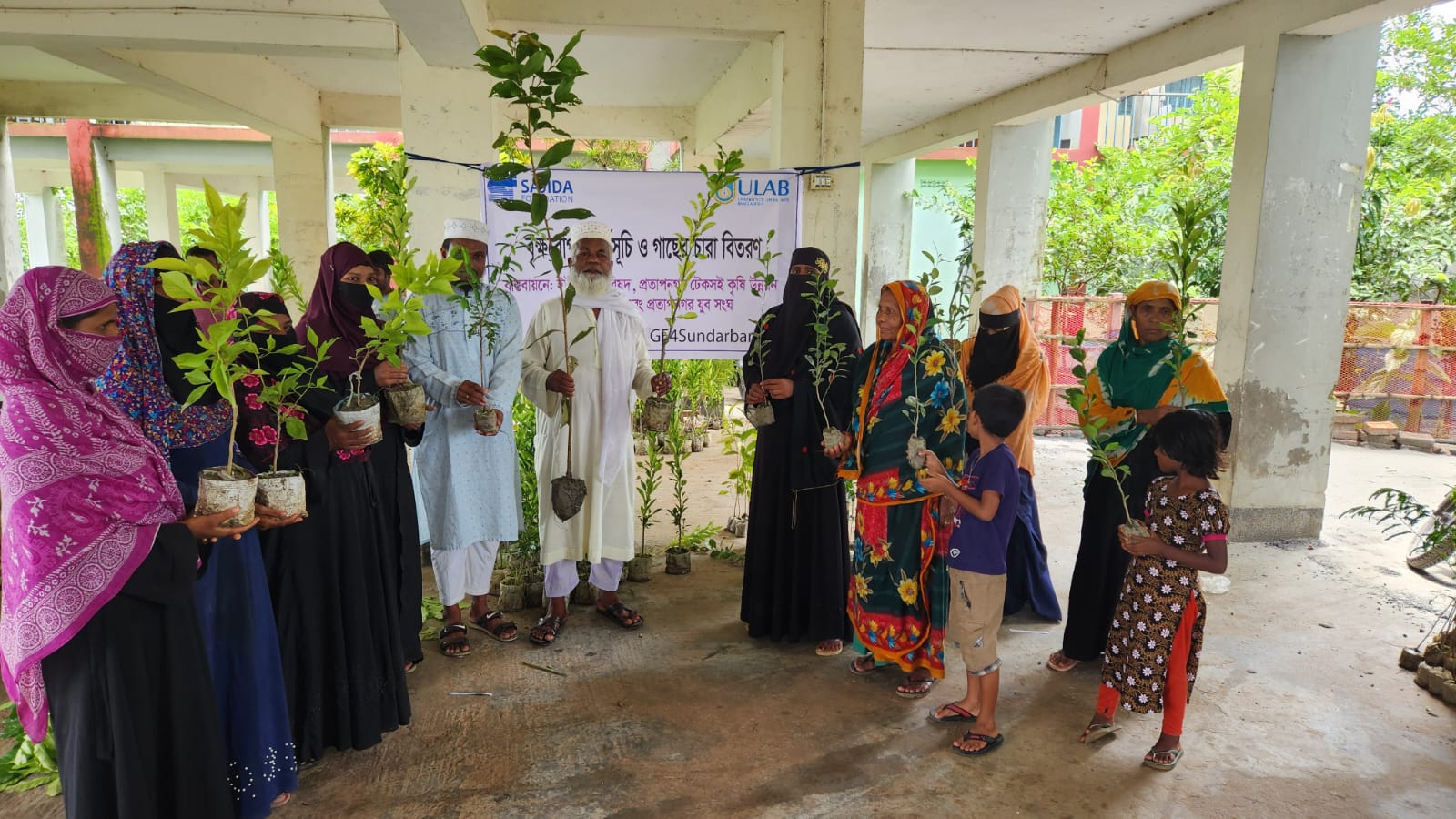
These native species were selected because they are well-suited to the local climate and soil conditions. They contribute to soil health, retain water, support local wildlife, and are more resilient to salinity and extreme weather. In addition to their ecological value, these trees offer long-term benefits to local livelihoods through fruit production and environmental protection.
The re-greening effort is part of a broader climate adaptation strategy. Restoring tree cover helps reduce erosion, improve air quality, and create natural barriers against cyclones and floods. It also supports the return of native biodiversity, which is critical for maintaining ecological balance.
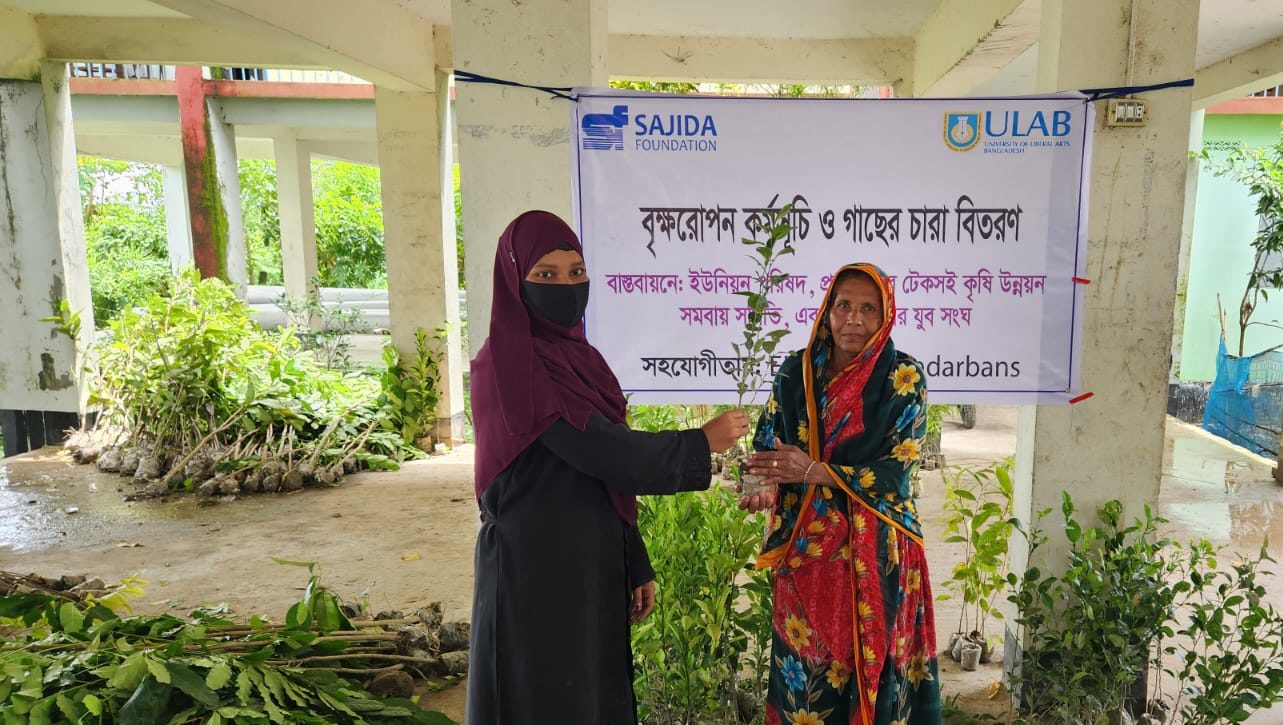
For many local residents, especially the older generation, the event was a meaningful reminder of what the area used to be and a hopeful step toward what it could become again. The participation of young people alongside elders highlighted the shared responsibility and intergenerational commitment to protecting the environment.
Engage4Sundarbans will continue to support the care and monitoring of the planted areas, working closely with local partners to ensure survival and growth. This initiative reflects the power of community-led action and the belief that with sustained effort, degraded landscapes can be revived.
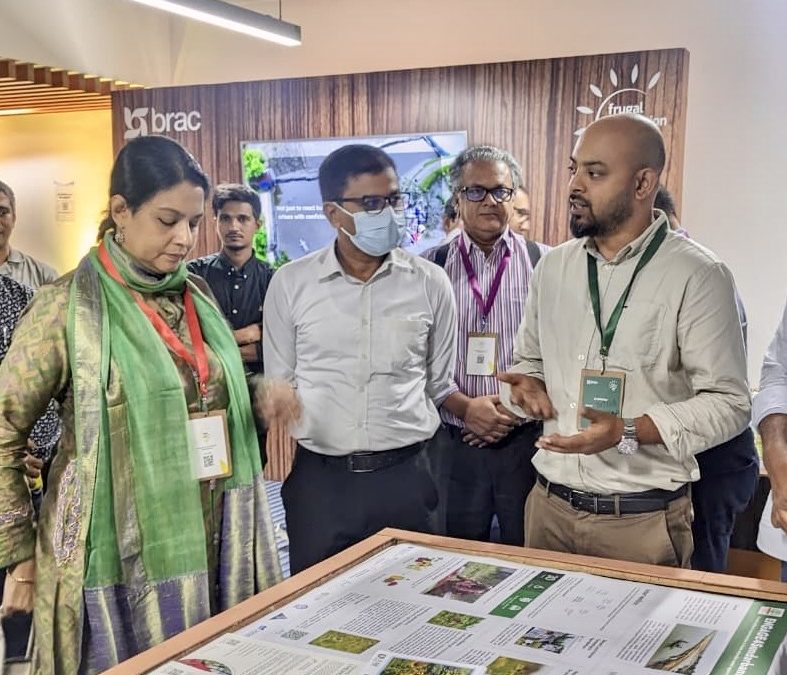
by Shimim Mushsharat | Jul 30, 2025 | Previous Events, Uncategorized
SAJIDA Foundation and the University of Liberal Arts Bangladesh (ULAB) had the honour of jointly showcasing the ENGAGE4Sundarbans project at the Frugal Innovation Forum (FIF) hosted by BRAC in Dhaka, Bangladesh, from 25-26 July 2025. The forum brought together researchers, practitioners, entrepreneurs, policy makers and development partners working on climate adaptation to discuss emerging climate challenges and solutions in the Global South. This year, the Forum centred around climate adaptation in agriculture, food security, and livelihoods.
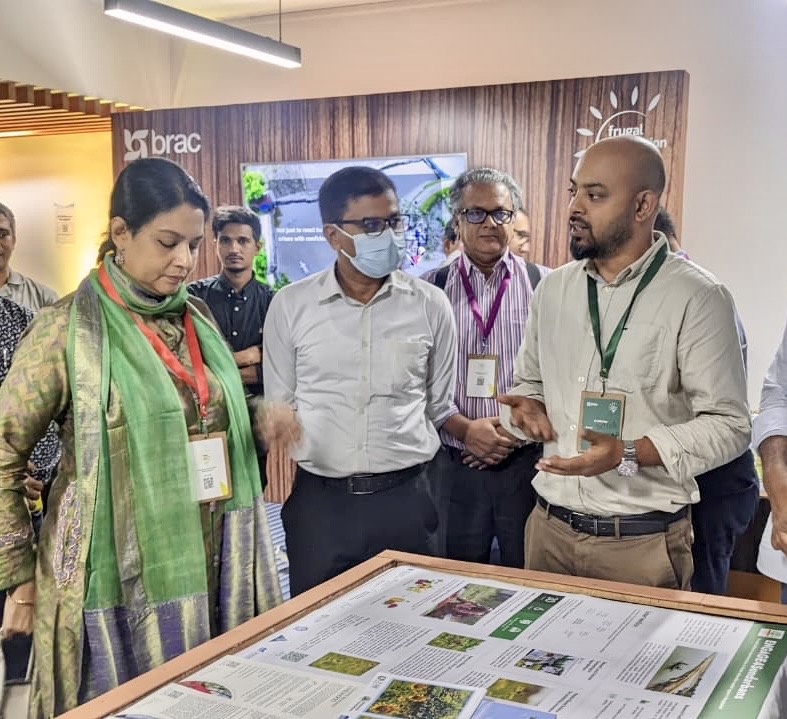
SAJIDA Foundation’s Lead Researcher presenting the ENGAGE4Sundarbans project to Rizwana Hasan, Adviser for Ministry of Environment, Forest and Climate Change of Bangladesh
During FIF 2025, Nurul Islam Biplob, Lead Researcher at SAJIDA Foundation and Faisal Imran, Senior Research Associate, ULAB, shared insights from ENGAGE4Sundarbans’ Living Lab approach, emphasising how community-driven, gender-responsive agroecological practices are helping restore degraded lands in Protapnagar, a climate-vulnerable union located in the Sundarbans delta.
“Our goal was to strengthen social resilience for communities living near the Sundarbans, while also supporting local biodiversity and ecosystems,” SAJIDA’s Lead Researcher explained. He also reflected on the importance of listening to local, indigenous knowledge and co-creating adaptation strategies with communities who experience climate vulnerability firsthand.
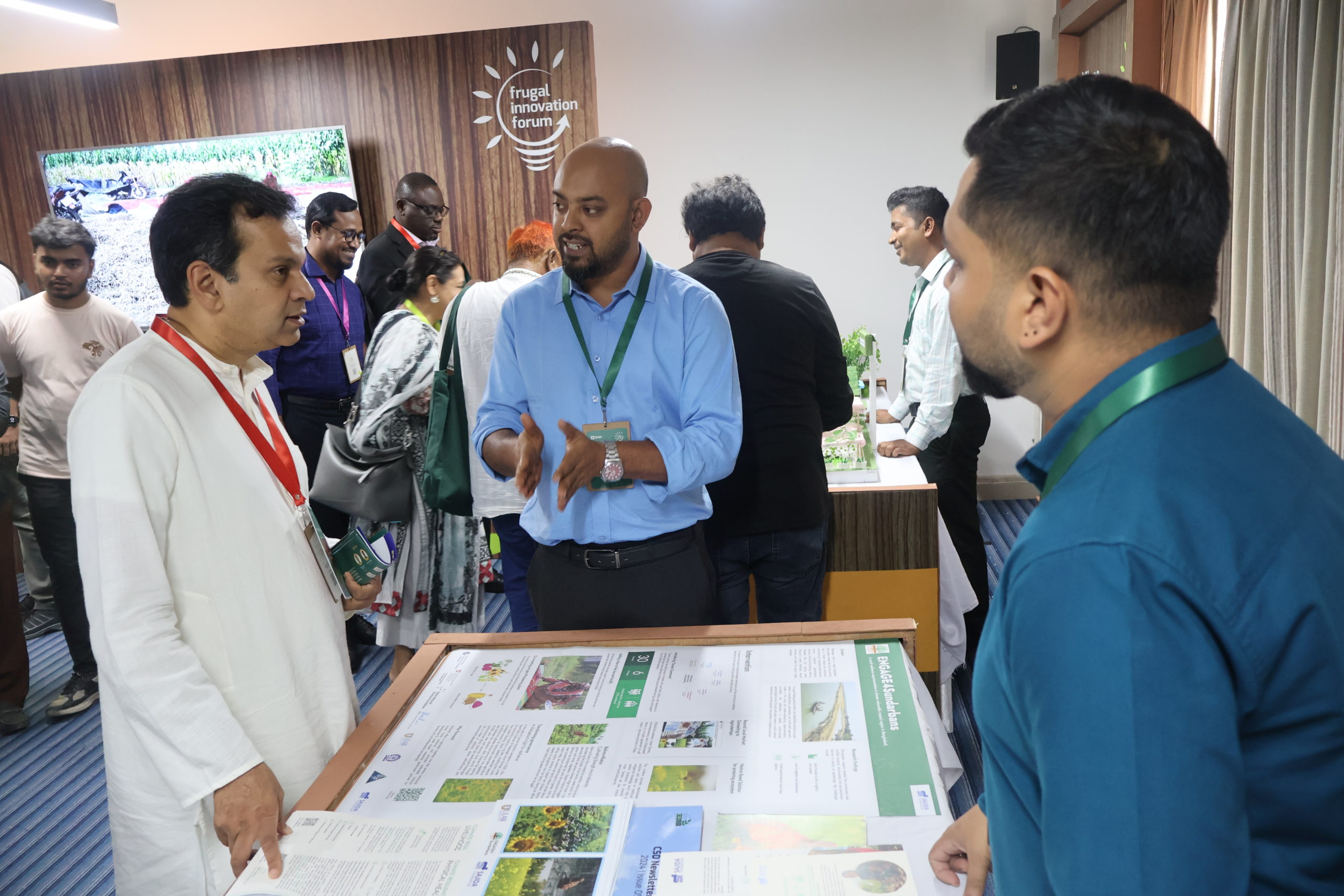
Presenting ENGAGE4Sundarbans to Asif Saleh, Executive Director of BRAC, during FIF 2025.
This participation was significant as it created space for dialogue with key policymakers and development actors. The presentation received thoughtful engagement from climate leaders, including Rizwana Hasan, Adviser for Environment, Forest and Climate Change of Bangladesh; and Asif Saleh, Executive Director of BRAC.
ENGAGE4Sundarbans’ participation at FIF 2025 reflects our commitment to climate justice, locally led innovation, and building social and climate resilience for the most affected populations.
Watch ENGAGE4Sundarban’s session highlight from FIF 2025 ⬇️
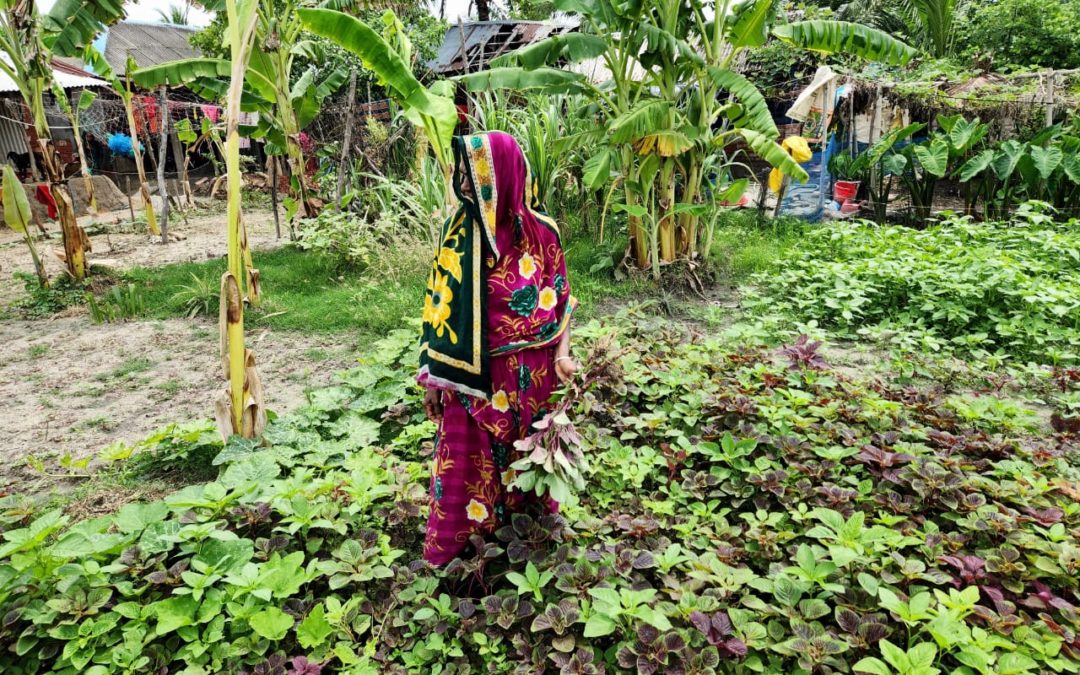
by Shimim Mushsharat | Jul 8, 2025 | Blog, Resources
Rahima Khatun’s life has been shaped by challenges. She lives with her husband, one of her sons, his wife, and their child. Her two other sons have married and moved out. Her husband, now elderly, is unable to work much, and the son who lives with them is only able to earn seasonally. Together, their incomes are not enough to support the family of five.
With no land in their name, they faced not just financial uncertainty but also a lack of food security.
But Rahima is not one to be intimidated by obstacles. Through sheer determination and persistence, she turned her hardship into an opportunity.
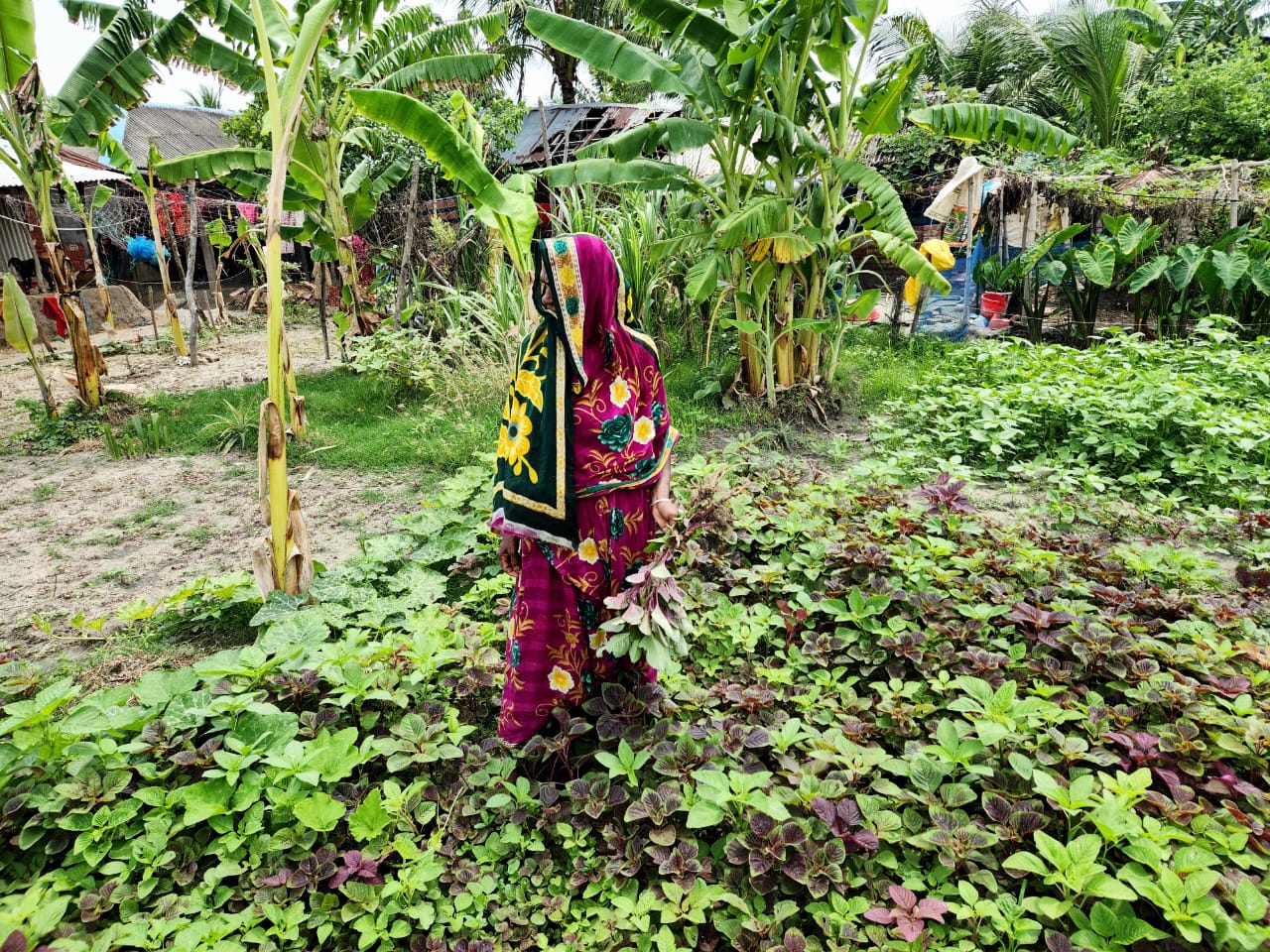
Rahima Khatun grows a multitude of vegetables on her yard.
A Natural Leader in the Field
When SAJIDA Foundation’s ENGAGE4Sundarbans project started its ethnographic research, Rahima was selected as research participant due to her involvement with agriculture. She spoke candidly during interviews, sharing her farming knowledge and the struggles that came with having limited land and financial resources.
From the beginning, Rahima was determined to carve out a space for herself in her family and community. She was surprised and encouraged when she learned she had been selected to join one of ENGAGE4Sundarbans’s intervention groups testing crops with high value addition potential. She was placed in the group assigned to grow fennel along with two other female farmers.
Before long, Rahima became much more than just a participant. She took the lead in group planning, organised meetings, and became an active figure in project activities. Even her husband began to support her involvement, gradually letting go of his initial doubts.
As part of ENGAGE4Sundarban project’s group farming initiative, she now cultivates rice, grains, and vegetables on the land next to her home. In another small plot of just two decimals, she farms freshwater fish for her family’s consumption. Her yard, too, has a multitude of vegetables growing. Years ago, her elder son started building a roofed house, but financial constraints postponed the construction. Rahima, ever resourceful, transformed the unfinished structure into yet another thriving vegetable garden.
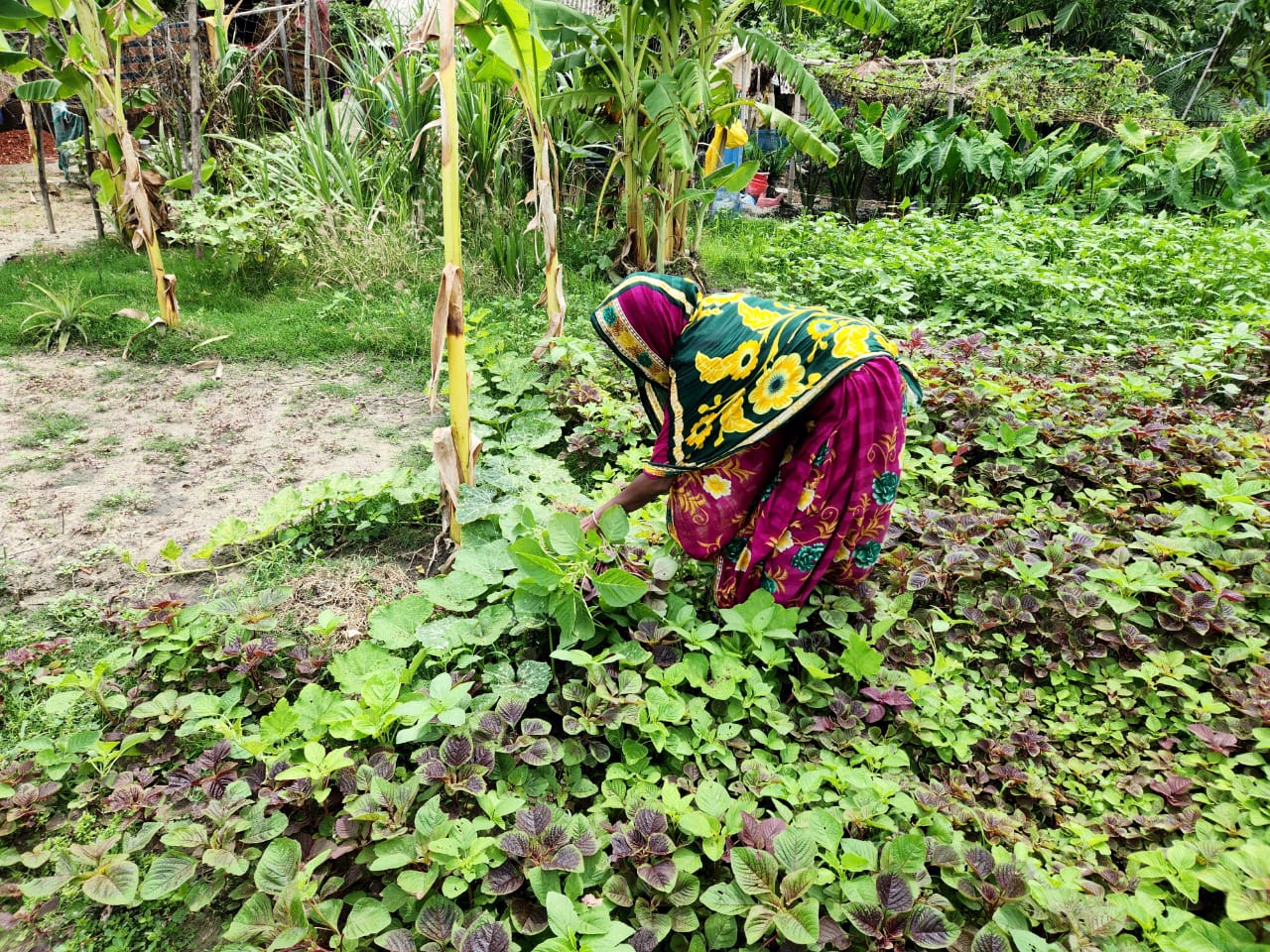
Through determination and persistence, Rahima has turned her hardship into an opportunity.
A Home Garden to Ensure Food Security
What truly sets Rahima’s farming apart is her commitment to diversity. During the monsoon, she grows Aman paddy. Once harvested, she uses the same land to plant potatoes, sunflowers, fennel, sesame, and melon during the Rabi season from Mid-November to Mid-March. In other plots, she cultivates mustard alongside red cabbage, spinach, radish, and coriander, aubergine, onions, beans, beetroot, gourd, and winter crops like spring onions, garlic, and chillies also find space in her garden. Her motivation is both practical and personal. She refuses to buy oil or vegetables from the market.
“Why spend money [on oil or vegetables] when I can grow them myself?” Rahima, a traditional farmer and participant of ENGAGE4Sundarbans project, says.
One of Rahima’s long-held dreams was to lease land in her own name, so she could grow rice without depending on others. Her wish came true when ENGAGE4Sundarbans leased land under the names of Rahima and her group members.
Looking ahead, Rahima hopes that by selling fennel in the Rabi season and vegetables during Kharif (Mid-March to Mid-November), she can earn enough to lease more land and commercially scale up her farming.



















